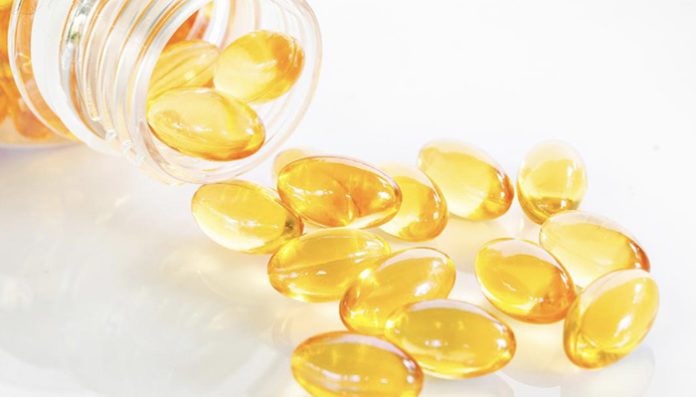
You’ve previously learned that IV vitamins and minerals, as well as custom IV therapy, may help improve your well-being. And you’ve also heard about the “sunshine vitamin”, but what exactly is it?
This fun moniker refers to vitamin D, which the human body needs to thrive: it helps support bone health (including our teeth!); it aids in maintaining calcium and phosphorous levels, and it helps ensure the immune system is working order.
Vitamin D influences the body in many ways. But do you really need vitamin D supplements? Brought to you by the IV Lounge, an IV therapy clinic that offers intravenous vitamins and minerals, we highlight the benefits of Vitamin D, effects of vitamin D deficiency, and why vitamin D IV therapy booster shots supplementation may be considered:
Some Canadians may have a deficiency in vitamin D.
When bare skin is revealed to the sun, your skin constructs vitamin D for the body. But in order for this to occur, you need sun exposure. During Canadian winters, we get less sunshine due to wearing winter coats and staying indoors. To maintain our vitamin D levels during winter, we may need an extra dose of vitamin supplementation. Though the administration of vitamin D is not offered through vitamin infusions in Toronto, extra vitamin D is obtainable via diet changes or taking oral vitamin supplements. Vitamin D therapies such as in the form of Vitamin D IV booster shots are also available at The IV Lounge.
Your health or lifestyle may put you at risk of a vitamin D deficiency.
Supplementation should be considered for the following people at risk of a vitamin D deficiency: people who have little sun exposure due to additional coverings (i.e. robes, scarves, etc.); the elderly; pregnant individuals; those who are obese; people diagnosed with malabsorption disorders (i.e. celiac, Crohn’s, etc.); individuals with dark skin pigmentation.
Mental health and vitamin D may be related.
Low vitamin D levels may be associated with depression. For instance, people diagnosed with depression have been shown to have low vitamin D levels in studies. More research must be conducted for definite correlations: “The mechanism whereby vitamin D may be associated with mental disorders is not clearly understood. It has been reported that there are vitamin D receptors in the hypothalamus, which may be important in neuroendocrine functioning,” explains Issues in Mental Health Nursing.
Vitamin D may help sustain the immune system.
When the body lacks vitamin D, it becomes vulnerable to health issues such as pulmonary diseases or respiratory illnesses such as bronchitis and the cold. But lab studies have suggested that optimal vitamin D levels may aid in safeguarding the body against various viruses. Thus, it wouldn’t hurt to take a vitamin D supplement during the winter months to support your wellness. You’re welcome to contact us to see how a vitamin D IV therapy booster shot and a custom intravenous vitamin treatment may also contribute to strengthening your immunity.
Chronic pain may be possibly subdued from additional vitamin D.
Scientists speculate that low vitamin D levels may impact chronic pain. However, further research must be considered for vitamin D’s precise effects: “… the hypothesis that vitamin D perhaps influences pain-signalling pathways is biologically plausible because vitamin D and/or vitamin D receptor gene expression has been shown in relevant tissues such as skin (pain signal transduction), dorsal root ganglion neurons (conduction), spinal cord (transmission/modulation), and brain (pain perception),” explains Frontiers in Immunology.
Vitamin D may help incite cancer prevention.
Vitamin D may possibly be related to cancer risk. “Early epidemiologic research showed that incidence and death rates for certain cancers were lower among individuals living in southern latitudes, where levels of sunlight exposure are relatively high than among those living at northern latitudes,” explains the National Cancer Institute (NIH). In a study with mice, doses of vitamin D supplementation were shown to lessen the growth of cancer cells. Keep in mind though that additional research must be conducted on this topic.
References
Bikle DD. Vitamin D metabolism, mechanism of action, and clinical applications. Chem Biol. 2014;21(3):319-329. doi:10.1016/j.chembiol.2013.12.016
Bischoff-Ferrari HA, Dawson-Hughes B, Staehelin HB, Orav JE, Stuck AE, Theiler R, Wong JB, Egli A, Kiel DP, Henschkowski J. Fall prevention with supplemental and active forms of vitamin D: a meta-analysis of randomized controlled trials. BMJ. 2009 Oct 1;339:b3692. DOI: 10.1136/BMJ.b3692. PMID: 19797342; PMCID: PMC2755728.
Christakos, S.; Ajibade, D.V.; Dhawan, P.; Fechner, A.J.; Mady, L.J. Vitamin D: Metabolism. Endocrinol. Metab. Clin. N. Am. 2010, 39, 243–253.
Cuomo, Alessandro & Giordano, Nicola & Goracci, Arianna & Fagiolini, Andrea. (2017). Depression and Vitamin D Deficiency: Causality, Assessment, and Clinical Practice Implications. Neuropsychiatry. 07. 10.4172/Neuropsychiatry.1000255.
de la Puente Yagüe M, Collado Yurrita L, Ciudad Cabañas MJ, Cuadrado Cenzual MA. Role of Vitamin D in Athletes and Their Performance: Current Concepts and New Trends. Nutrients. 2020;12(2):579. Published 2020 Feb 23. doi:10.3390/nu12020579
Dzik, K.P., Kaczor, J.J. Mechanisms of vitamin D on skeletal muscle function: oxidative stress, energy metabolism and anabolic state. Eur J Appl Physiol 119, 825–839 (2019). https://doi.org/10.1007/s00421-019-04104-x
Ecemis GC, Atmaca A. Quality of life is impaired not only in vitamin D deficient but also in vitamin D-insufficient pre-menopausal women. J Endocrinol Invest. 2013 Sep;36(8):622-7. doi: 10.3275/8898. Epub 2013 Mar 19. PMID: 23511484.
Forrest, K.Y.; Stuhldreher, W.L. Prevalence and correlates of vitamin D deficiency in US adults. Nutr. Res. 2011, 31, 48–54.
Habib AM, Nagi K, Thillaiappan NB, Sukumaran V, Akhtar S. Vitamin D and Its Potential Interplay With Pain Signaling Pathways. Front Immunol. 2020;11:820. Published 2020 May 28. doi:10.3389/fimmu.2020.00820
Holick MF. Vitamin D deficiency: what a pain it is. Mayo Clin Proc. 2003 Dec;78(12):1457-9. doi: 10.4065/78.12.1457. PMID: 14661673.
L Bishop, E., Ismailova, A., Dimeloe, S., Hewison, M. and White, J.H. (2021), Vitamin D and Immune Regulation: Antibacterial, Antiviral, Anti‐Inflammatory. JBMR Plus, 5: e10405. https://doi.org/10.1002/jbm4.10405
Montenegro KR, Cruzat V, Carlessi R, Newsholme P. Mechanisms of vitamin D action in skeletal muscle. Nutr Res Rev. 2019 Dec;32(2):192-204. doi: 10.1017/S0954422419000064. Epub 2019 Jun 17. PMID: 31203824.
Norman, A.W. From vitamin D to hormone D: Fundamentals of the vitamin D endocrine system essential for good health. Am. J. Clin. Nutr. 2008, 88, 491S–499S.
Nowak, A., Boesch, L., Andres, E., Battegay, E., Hornemann, T., Schmid, C., Bischoff-Ferrari, H. A., Suter, P. M., & Krayenbuehl, P. A. (2016). Effect of vitamin D3 on self-perceived fatigue: A double-blind randomized placebo-controlled trial. Medicine, 95(52), e5353. https://doi.org/10.1097/MD.0000000000005353
Sue Penckofer, Joanne Kouba, Mary Byrn & Carol Estwing Ferrans (2010) Vitamin D and Depression: Where is all the Sunshine?, Issues in Mental Health Nursing, 31:6, 385-393, DOI: 10.3109/01612840903437657
Verstuyf A, Carmeliet G, Bouillon R, Mathieu C. Vitamin D: a pleiotropic hormone. Kidney Int. 2010 Jul;78(2):140-5. doi: 10.1038/ki.2010.17. Epub 2010 Feb 24. PMID: 20182414.
Vitamin D and Cancer Prevention. National Cancer Institute. Reviewed on Oct. 21, 2013, viewed on Feb. 11, 2021.
Zittermann A. Vitamin D in preventive medicine: Are we ignoring the evidence? Br J Nutr 2003;89:552-72.









